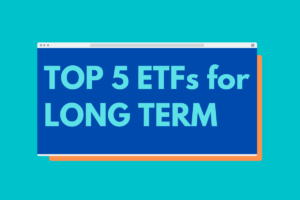TRANSCRIPT
One of the biggest threats to most people’s investment portfolios is one that is actually hidden in plain sight. If you’re not careful you could easily lose half a million dollars or more of the money you’re investing and growing. It’s a big secret that’s not really a secret that many investors like you and me are not always aware of and so today I’m going to give you the information you need to make better informed choices with your investing.
You’re probably enrolled in a 401(k) or have a Roth IRA or even a taxable account and maybe you’re portfolio is mostly made up of mutual funds, which is what most people are invested in with their 401k accounts. But how many of us actually take the time to read the prospectus of the investments we’re buying?
What is a prospectus anyways? A prospectus is a formal document required by and filed with the Securities and Exchange Commission (SEC) that provides details about an investment offering to the public. A prospectus is filed for offerings of stocks, bonds, and mutual funds. The brokerage’s prospectus of a mutual fund or ETF actually tells us what this big threat to our investment portfolio is and it’s fees. Whether it’s a fee by a company that charges you to manage your portfolio or the expense ratio that retail investors like you and me get charged, these fees can all add up to hundreds of thousands of dollars if not more!
And don’t worry, I’ve been enrolled in my 401(k) savings plan for almost 14 years and started becoming more aware of fees about 7 years into having my 401(k). Since then I’ve learned this is something you can easily understand the basics of so you can make the right adjustments today, especially if you’re a DIY investor like me. And it starts with getting you to understand expense ratios since we really don’t have to worry about additional management fees.
What is an Expense Ratio?
Let’s talk about expense ratios. When choosing a mutual fund to invest in you always want to make sure you look at something called the expense ratio. An expense ratio is basically the percentage of the total amount invested in a fund that is charged to shareholders of that fund. This is a very important factor when investing in a mutual fund or ETF (exchange traded fund). Often times people are investing in a fund and don’t even realize how much their expense ratio is, which means they don’t know how much they are paying in fees.
What is a Good Expense Ratio?
For example, right now the expense ratio for Vanguard’s Total Stock Market Fund VTSAX is .04% or 4 “basis points” for Fidelity’s S&P 500 Index Fund FXAIX is 0.015%, even the very popular Schwab U.S. Dividend Equity ETF SCHD has an expense ratio 0.06%. Let’s say you invested $500 every month into Vanguard’s VTSAX which has a 0.04% expense ratio for 40 years earning what the market has averaged after inflation about 8%. Without taking into consideration the expense ratio, at the end of 40 years you will have a total of about $1.75 million. That’s not bad right? Now apply the expense ratio of .04% which gives you an average annual rate of return of 6.96% and a final total of about $1.73 million. Over 40 years you paid about $20,000 in fees and this is with a pretty low cost index fund. This isn’t bad considering you saved $240,000 and the rest was all growth. What does that mean for funds that have higher expense ratios? Let’s see in the next example.
How About a High Expense Ratio Example?
If you can’t already tell fees are a big deal and understanding how much you’re paying in fees for your IRA, 401k and other investment accounts is important. Whether it’s actively or passively managed mutual funds or ETFs, you don’t get those fees back. In the previous example we used an expense ratio of .04%. What happens when we have the same return in a similar fund that has an expense ratio of 1%? Well this drops our average annual return from 8% to 7% for a total 40 year amount of about $1.3 million. OMG!!! You’ve given up $450,000 over 40 years compared to the $20,000 in the previous example. This is why having low cost index funds can really help you maximize your returns.
What about the mutual fund managers who can outperform the index? Well, studies have shown that majority of mutual fund managers do not outperform the index they are competing against.
I personally have almost 14 years experience investing and DIY’ing my own 401k, now my wife’s and our IRAs, HSAs and taxable accounts and I can tell you for the time being we’re going with index funds and ETFs that have expense ratios that are as low as possible. Currently, I am invested in two funds through my 401(k) plan where one expense ratio is .015% and the other is .06%. Very low. My plan is to always try to have index funds with expense ratios no greater than .1% or 10 basis points. When you start to understand expense ratios you quickly realize how simple it is for you to improve the long-term performance of your investment portfolio.
Other Fees to Consider
Typically you’ll find management fees that aren’t included in the expense ratio. There’s also something called a Turnover Rate, which basically represents how often trading is going on in a mutual fund. This is important for taxable accounts, because you’re not just getting charged the expense ratio but you’re also responsible for the transactions that occur within the mutual funds including index funds and ETFs and I’ll discuss this at a later time. For now I want you to start understanding and questioning all investment fees. Investment companies should disclose this information to you when you ask and you can typically find the expense ratio of most mutual funds and ETFs on the brokerage companies website when looking over different funds. Find out what they charge per year and take that into account when you choose investment funds and investment companies.
Warren Buffett made the following statement in his 2017 letter to Berkshire Hathaway’s shareholders: “Performance comes, performance goes. Fees never falter.”


